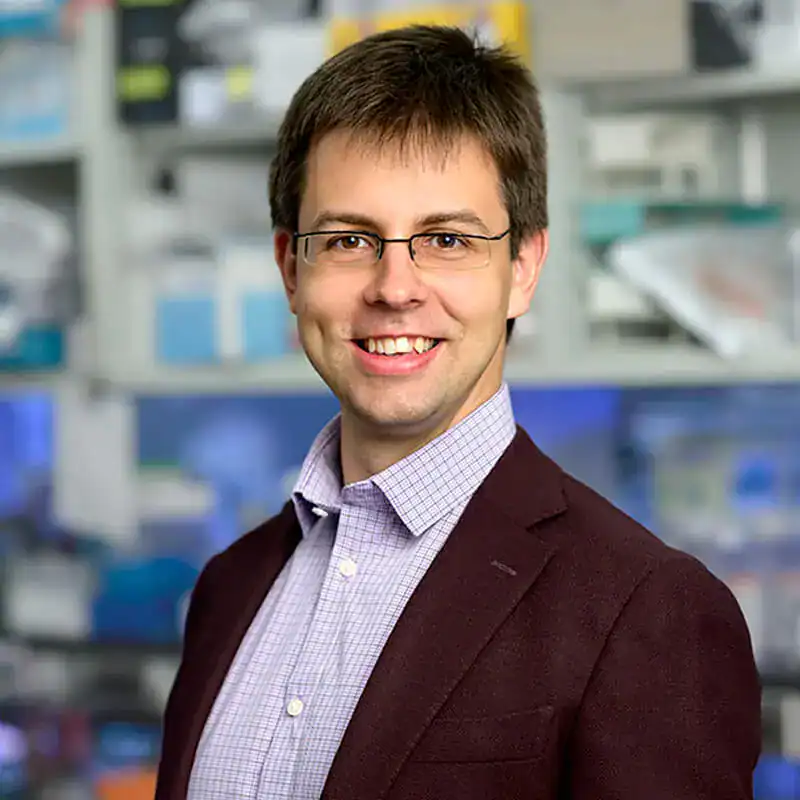CAR T-cell therapies have transformed cancer treatment, but each treatment is custom-built from a patient’s own cells, making it a slow, expensive, and sometimes inaccessible treatment option. A scalable, off-the-shelf version derived from stem cells could remove these barriers, but current protocols mainly produce CD8+ T cells and fail to generate CD4+ helper T cells, which are key players in long-term anti-tumor immunity.
Dr. Anton Dobrin aims to solve that challenge by evaluating two strategies to induce CD4+ T-cell development: first, by turning specific genes on or off at defined times to guide differentiation; and second, by running a broad genetic screen to uncover previously unknown regulators of CD4 lineage commitment. “More broadly, my work will establish a new platform on which extensive cell engineering can be performed and validated for safety, allowing for more carefully controlled and more potent cell immunotherapies,” he explains. Dr. Dobrin’s scientific training began in a high school co-op program and led to research in global labs at ETH Zurich and Memorial Sloan Kettering Cancer Center. «I have been excited by the ability to re-engineer biology since high school,» he states. In his doctoral work, he devised different strategies for activating T-cell receptor-targeted T-cells that improved anti-tumor efficacy in human cells and preclinical mouse models. Dr. Dobrin is now turning to induced pluripotent stem cells – cells that have been reprogrammed to an embryonic stem cell-like state – to address accessibility and scalability in immunotherapy, designing truly universal, off-the-shelf cancer treatments.
Sponsor
Juan Carlos Zuñiga-Pflücker, PhD
Research Focus
Acute lymphocytic leukemia, CAR T-cell therapy, stem cells
Projects and Grants
Establishing a genetic engineering strategy to produce iPSC-derived CD4 T cells for off-the-shelf adoptive cell therapies
